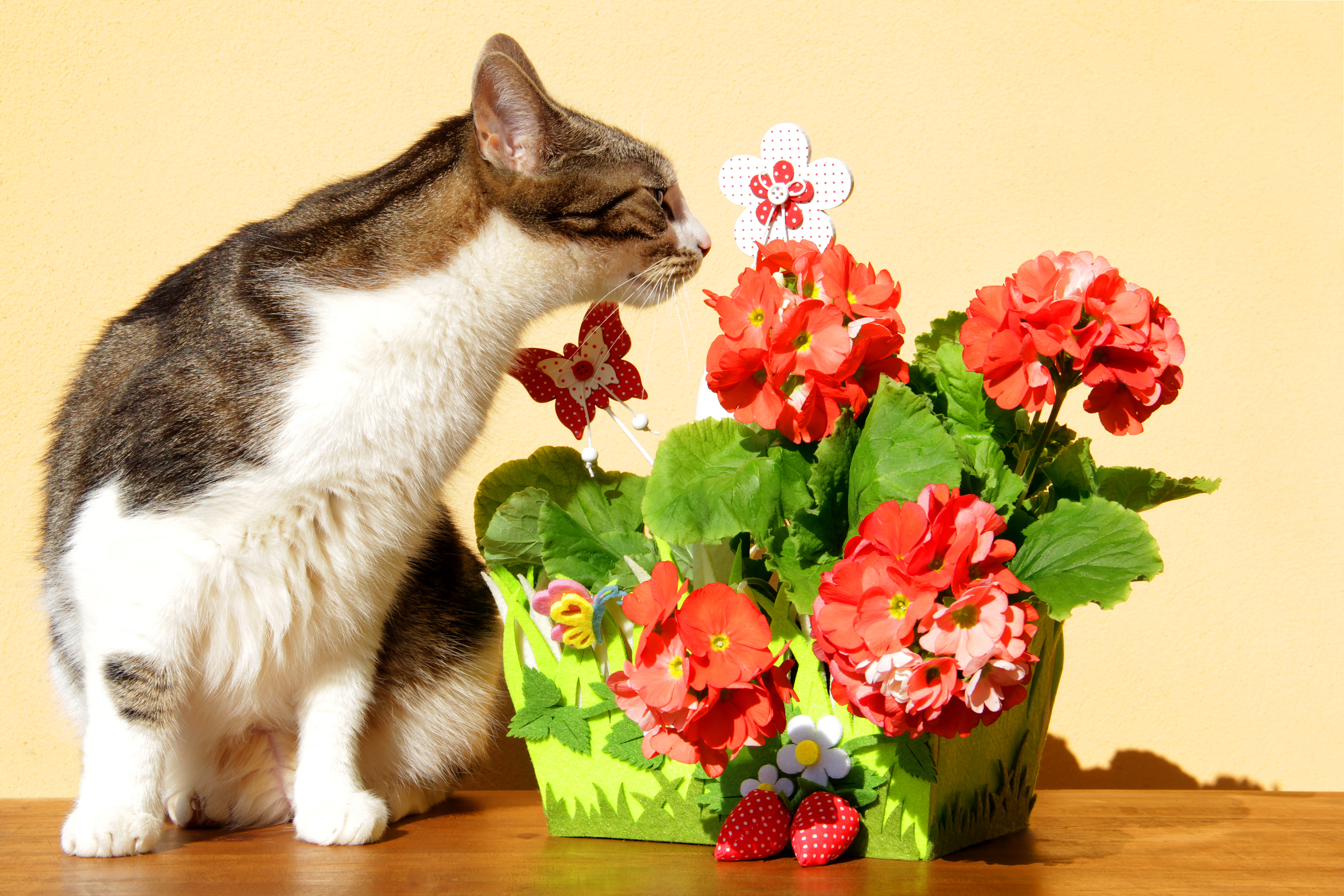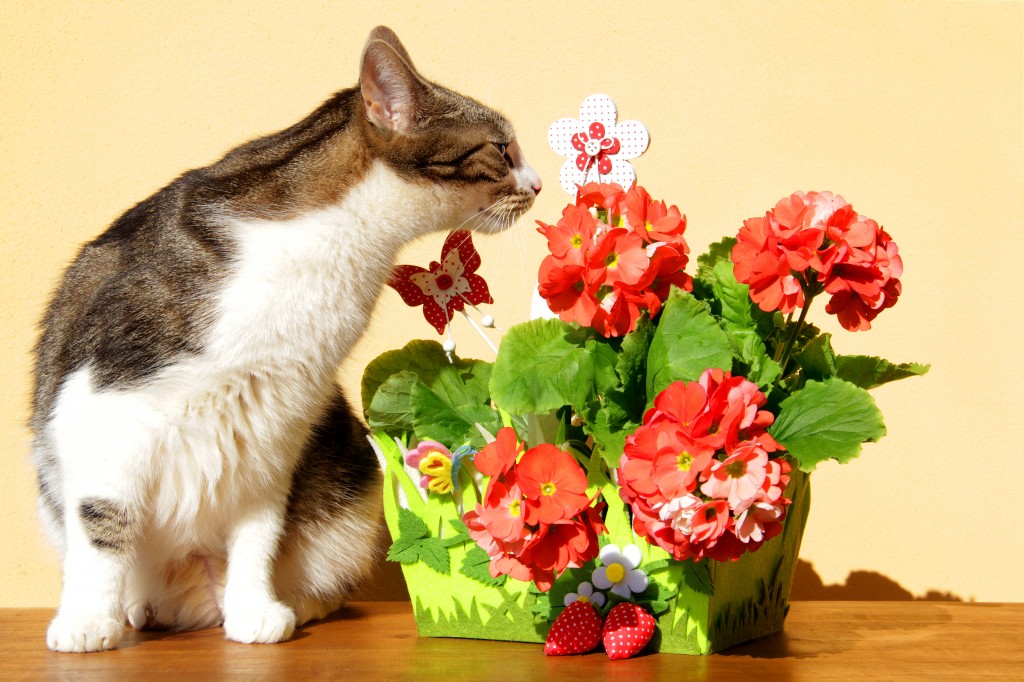
This year, National Poison Prevention Week is March 20-26. Usually we think about how to protect ourselves and our family, but many of us overlook some of our most vulnerable family members – our pets! And, given that Easter is right around the corner (which presents several things you’ll want to consider, which Diane wrote about in her post here), it’s probably time for a refresher about what you need to do to safeguard your kitties all year-round…not just this week, or even just during the holidays! The CATalyst Council has some great tips to keep in mind, in addition to some common-sense safety precautions:
- Make sure your household plants are not toxic to cats (or dogs), because we all know that kitties like to munch on green things that look or smell interesting. ALL lilies (including Easter lilies) are toxic to kitties – even in small amounts – so make sure to avoid these pretty flowers during the holidays! And, if your cat has access to the outdoors, please keep toxic plants out of our garden and landscaping. If your cat eats a toxic plant, symptoms can vary quite widely, so be on the lookout for any changes in your cat’s behavior. A list of plants that are poisonous to cats can be found HERE.
- Don’t give your cats human food. While many of us find things like chocolate, onion, garlic, chives, and various nuts, to be very tasty, these and other foods can be very toxic to cats and dogs. At a minimum, you risk upsetting your cat’s tummy with foods that she is not used to eating! For a list of human foods that are not good for cats, please click HERE.
- Keep ALL medications out of your cat’s reach so that curious kitties don’t accidentally ingest medications for people (even aspirin is harmful to cats!). Further, if you give your cat or other animals medications, they need to be taken properly, so make sure that you are giving correct dosages every time. Poisoning through ingesting medications is one of the most common ways cats run into trouble with toxic substances.
- Mouse and rat poison can also poison and kill cats (unfortunately, one of my childhood cats died this way, so this one hits home with me). And it’s not so easy to control because cats don’t eat the poison itself, but they eat rodents who have been poisoned, so it becomes “second-hand” poisoning. Please use other methods to humanely trap or kill rodents in your home, or at least be aware of where your cat ventures when she is outside.
- Some cats have severe reactions to flea medication and collars. ALWAYS make sure that your vet has approved any topical flea/tick medication (both the liquid application kind, or the kind applied through the use of a collar). And, if you do use a collar, make sure that it is fitted properly so that your cat can’t chew it or accidentally ingest pieces of it!
If you suspect that your kitty has been poisoned or has eaten or come into contact with a toxic substance, please contact your vet immediately, or call the ASPCA’s 24-Hour Emergency Poison Hotline at 888-426-4435. Have emergency numbers on-hand or next to the phone so that you can be prepared, because accidents do happen. I hope that you and your pets have a happy and healthy Poison Prevention Week all year long!

